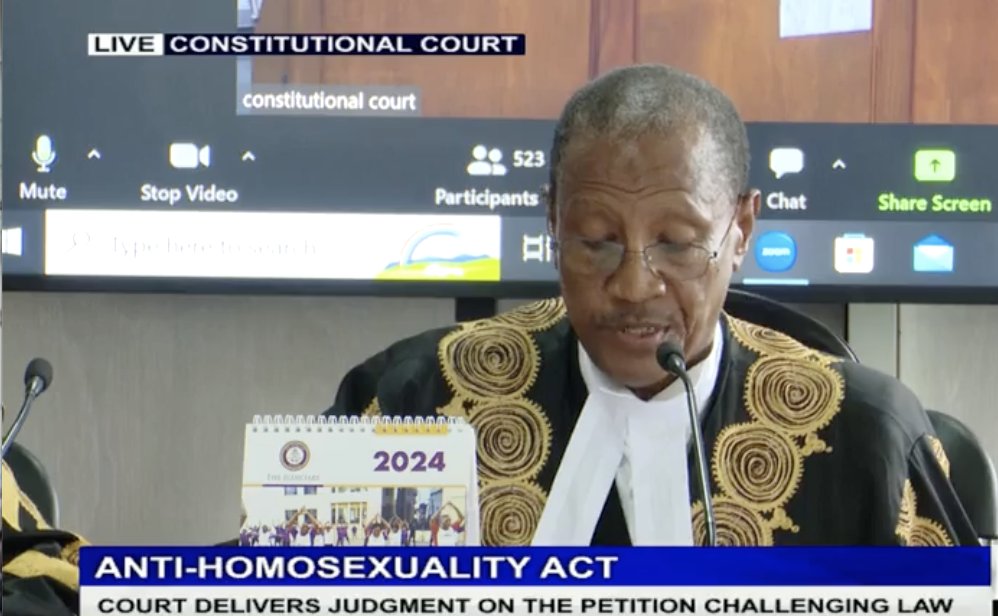The Anti-Homosexuality Act, of 2023, has been the target of challenges, but the Ugandan Constitutional Court has dismissed them.
At the Constitutional Court in Kampala on Wednesday morning, the judges under the direction of Deputy Chief Justice Richard Butera issued a decision that stated, “We decline to nullify the AHA 2023 in its entirety.”
Butera said that the five-member court reached a unanimous decision.
In May, local human rights organizations with support from around the world petitioned the Constitutional Court to declare the law unconstitutional.
According to the Ugandan government, the law aims to prevent youngsters from being coerced into homosexual acts and to preserve Uganda’s values and cultural heritage.
Since then, the measure has encountered strong opposition as Western donors have cut money and banned politicians from leaving Uganda.
In their petitions, the activists had contended that insufficient and meaningful public participation had occurred during the law’s passage.
The campaigners further argued that it is against the rights to equality and non-discrimination, dignity, liberty, and privacy to make consenting same-sex sexual conduct among adults in private illegal.
Nonetheless, the Constitutional Court decided that law enforcement officials cannot enter a building without permission.
The judges said, “We respectfully do not share the view that an action’s enjoyment would negate its criminality; otherwise, offences like rape would be exempt from criminality.”
The court further declared that the Anti-Homosexuality Act, which restricts the use of media to print or broadcast offensive content, does not infringe upon the freedom to pursue one’s business or profession and upholds societal morals.
Butera stated, “There is evidence on record that the Anti-Homosexuality Act was enacted in response to the mischief that Section 11 of the Act aims to address—the recruitment of minors into the homosexual community.”
Regarding the Act’s Sections 12 and 13 that bar gay offenders from working in child care facilities, Butera stated that the goal of the legislation is to safeguard society’s most vulnerable members, including children.
According to the Act, anyone found guilty of the crime of aggravated homosexuality faces the death penalty, particularly if the victim is a child, a disabled person, a mentally ill person, an elderly person, or someone under the influence of drugs, alcohol, or medicine.
Additionally, an individual is considered to be an aggravated homosexual if they are the victim of a sexual act that results in a terminal illness; if the sexual act is carried out against the victim through force, threats, intimidation of any kind, fear of bodily harm, duress or undue influence, or by lying about the nature of the act.

